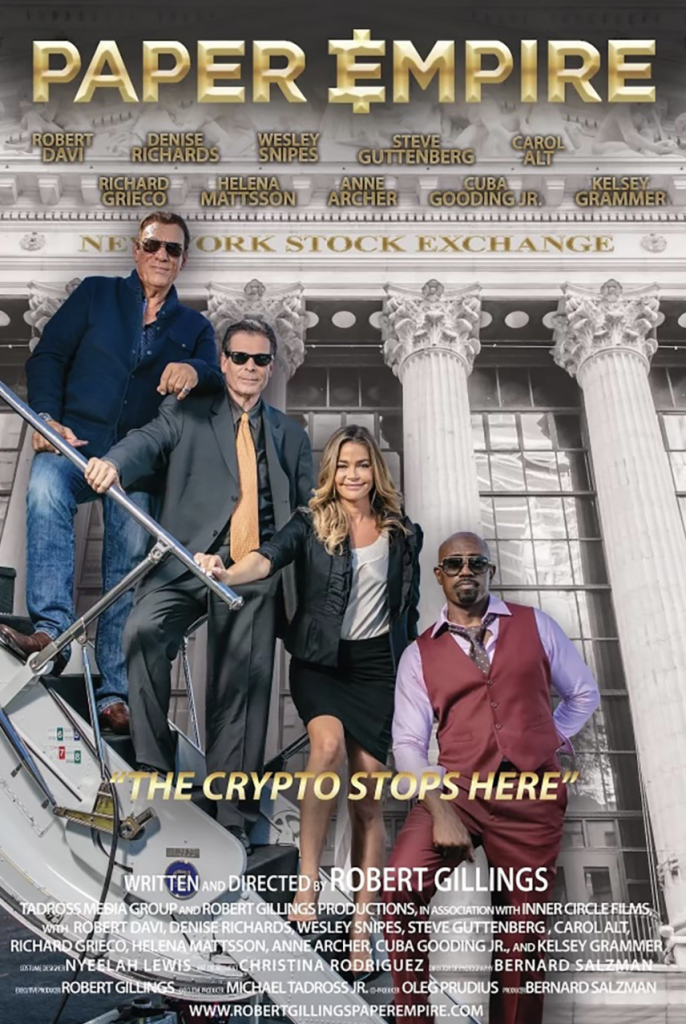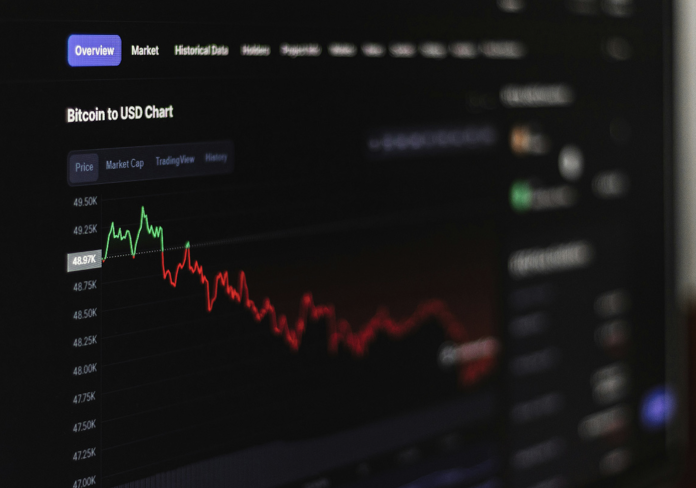Robert Gillings, the innovative mind behind the TV series “Paper Empire,” has offered his expert opinion on the recent Bitcoin crash, referring to it as the “Leaderless Leader.” Gillings, known for his groundbreaking work as the first American director to film a Hollywood TV show in AlUla, Saudi Arabia, brings a unique blend of entertainment and financial insight to the discussion.
In a recent statement, Gillings highlighted the inherent volatility and market sentiment that drive Bitcoin’s price fluctuations. “Bitcoin – Risk-On, Risk-Off! Bitcoin, the leaderless leader leading the tumbling price in cryptocurrencies today. Seems when the sentiment moves towards protecting capital by reducing exposure to risk, both traders and investors are quick to dump their Bitcoin,” Gillings commented.
This perspective comes at a critical time for Bitcoin, which has experienced a dramatic decline, losing over 20% of its value in the past month. Once hailed for its meteoric rise, Bitcoin now faces increased scrutiny from investors questioning its stability and long-term viability.

Bitcoin, a pioneering digital currency, was introduced in 2009 by an anonymous entity known as Satoshi Nakamoto. Unlike traditional currencies, Bitcoin operates on a decentralized peer-to-peer network, enabling direct transactions between users without the need for an intermediary. This characteristic distinguishes it from traditional financial systems, which rely on central banks and financial institutions for transaction verification and currency management.
Bitcoin transactions are secured through cryptography and recorded on a public ledger called the blockchain. This technology ensures transparency and immutability, meaning once a transaction is recorded, it cannot be altered. The blockchain is maintained by a network of computers, or nodes, that validate and record transactions through a process known as mining. Miners solve complex mathematical problems to add new blocks to the blockchain, and in return, they are rewarded with newly created Bitcoins.
The history of Bitcoin has been marked by significant volatility and high-profile events. One of the earliest notable incidents was in 2010, when a programmer traded 10,000 Bitcoins for two pizzas, an event celebrated annually as Bitcoin Pizza Day. Bitcoin’s price has experienced dramatic fluctuations, with major peaks in 2017 and 2021, where it reached an all-time high of over $68,000. However, it has also faced severe declines, including a notable drop of over 75% in 2022.
Bitcoin’s journey has not been without challenges. The Mt. Gox hack in 2014, where 850,000 Bitcoins were stolen, highlighted security vulnerabilities in the ecosystem. Despite such setbacks, Bitcoin has grown in acceptance and adoption, with increasing interest from institutional investors and integration into mainstream financial markets. Recent developments include the approval of Bitcoin ETFs, providing a more accessible investment vehicle for institutional players.
Gillings’ forthcoming TV series, “Paper Empire,” starring Kelsey Grammer and Denise Richards to name just a few of the A-list cast, delves into the intricacies of high finance, cryptocurrency, and the darker aspects of the global economy. The show has already garnered attention for its compelling depiction of financial intrigue and the complex characters maneuvering through this volatile landscape. Gillings’ deep understanding of financial markets, reflected in “Paper Empire,” lends considerable weight to his analysis of the current Bitcoin situation.
A forward-thinker, Gillings consistently integrates real-world financial trends and issues into the narrative of “Paper Empire.” His recent commentary on Bitcoin mirrors the themes explored in his show, offering valuable insights for both investors and the curious onlookers of the cryptocurrency market.
As Bitcoin continues to experience volatility, industry experts and investors are likely to seek guidance from thought leaders like Robert Gillings. His ability to blend engaging storytelling with financial expertise makes his perspectives particularly valuable in both the entertainment and financial sectors.




 Bitcoin
Bitcoin  Ethereum
Ethereum  Tether
Tether  XRP
XRP  USDC
USDC  TRON
TRON  Lido Staked Ether
Lido Staked Ether  Cardano
Cardano  Avalanche
Avalanche  Toncoin
Toncoin  Solana
Solana